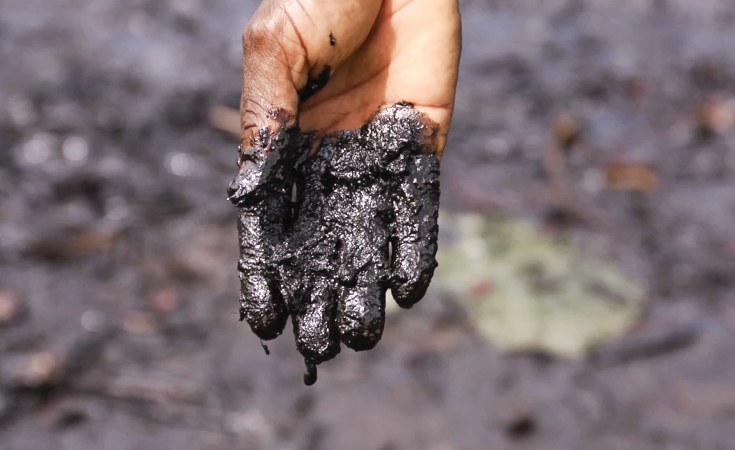Reacting to news that Nigeria's oil industry regulator is prepared to offer a fast-track sales approvals process for oil companies wanting to sell their businesses in the country, Isa Sanusi, Amnesty International Nigeria Director, said:
"With Shell currently seeking regulatory approval for the sale of its business in the Niger Delta, it is essential that it is held fully to account for decades of grievous human rights abuses related to oil spills which have polluted the environment, contaminated drinking water and poisoned agricultural land, fisheries and people.
"An offer made by Nigeria's industry regulator to fast-track approvals of sales by oil companies which accept responsibility for pollution must not be an easy option that allows Shell to cut and run from the suffering related to its operations in the Niger Delta, or which exposes local communities to more human rights harms.
Shell's sale must not be allowed to add to the fossil fuel industry's long and woeful record of pollution by leaving more harm in its wakeIsa Sanusi, Amnesty International Nigeria Director
"We are concerned the proposed fast-track option potentially gives large oil companies the upper hand in negotiations around sales approvals and will exclude affected local communities from the decision-making process. It is also essential that any approval is contingent on the buyers having the operational expertise and financial stability to manage the operations acquired safely and effectively to ensure local communities are not exposed to enduring harms.
"Amnesty International continues to recommend that any sales approval process related to Shell's business in Nigeria must be full and thorough and involve safeguards to protect human rights, including an environmental study to assess clean-up requirements, an inventory of the physical assets being sold, and an evaluation to ensure sufficient funds are set aside for potential decommissioning of oil infrastructure.
"Shell's sale must not be allowed to add to the fossil fuel industry's long and woeful record of pollution by leaving more harm in its wake. Amnesty International is campaigning for a fast phase out of fossil fuels and a fair transition to renewables."
Background
Shell announced in January that it had agreed to sell the Shell Petroleum Development Company of Nigeria (SPDC) to the Renaissance consortium, which comprises four exploration and production companies based in Nigeria and an international energy group, in a deal worth up to US$2.4 billion, financed partly with a loan to the buyers from Shell. The head of the Nigerian Upstream Petroleum Regulatory Commission outlined the fast-track approvals option at a meeting with representatives of major oil companies, including Shell and Exxon Mobil, in Abuja last week.


